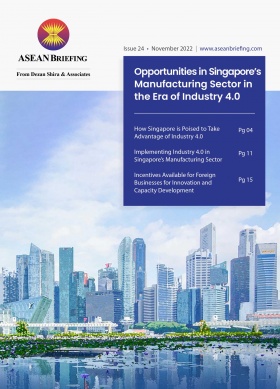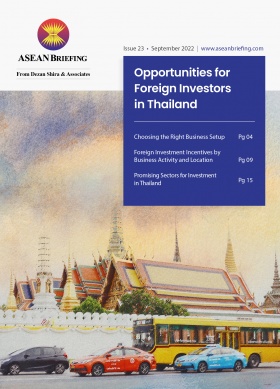Singapore and EU Sign Digital Trade Agreement
Singapore and the EU signed a digital trade agreement in February, making it the fifth of its kind signed by the city-state.
The agreement seeks to promote interoperability between digital systems to encourage more seamless cross-border data flows as well as to develop an open and trustworthy digital environment for businesses.
Singapore and the European Union (EU) signed a digital trade agreement in February 2023 to allow consumers and businesses from Singapore and the EU to transact online more seamlessly. The EU-Singapore Digital Partnership (EUSDP) will see both jurisdictions collaborate on facilitating digital trade, electronic payments, digital identities, and 5G/6G communication networks, among others.
The EUSDP is one of several digital economic agreements (DEAs) that Singapore has signed. These DEAs are the world’s first “digital only” trade agreements, aimed at establishing digital collaboration between jurisdictions to maximize the economic benefits from the surge in online business activity, accelerated by the COVID-19 pandemic.
Singapore and the EU are major trading partners and the EU-Singapore Free Trade Agreement came into force in 2019. The EU was Singapore’s second-largest services trade partner in 2021 with bilateral trade in services reaching more than S$67 billion (US$50.4 billion). Moreover, the EU was Singapore’s fourth largest goods trade partner for the same year with bilateral trade reaching S$102 billion (US$76.7 billion).Meanwhile, Singapore has a DEA with New Zealand and Chile, which came into effect in January 2021, with the UK in February 2022, and with South Korea in November 2022.
These DEAs build upon Singapore’s extensive network of free trade agreements, enhancing its role in digital trade worldwide.
What are the key features of the EUSDP?
Digital trade
Singapore and the EU have agreed upon a set of digital trade principles, forming the basis for bilateral digital trade rules. The two jurisdictions aim to foster open, fair, and competitive digital markets, benefiting businesses and consumers through cost savings from digital trade.
The next phase involves developing pilot projects to digitalize trade administration, commercial documents, and e-invoicing. These projects are expected to promote greater efficiency, security, and transparency in trade processes, and will serve as a blueprint for other countries seeking to modernize their digital trade frameworks.
Digital connectivity
Singapore and the EU will establish key digital infrastructure, such as data centers and submarine telecommunication cables. Such infrastructure is vital for facilitating seamless cross-border connectivity.
5G and 6G technologies
Both jurisdictions will explore research and development initiatives for the uptake of 5G and technologies beyond 5G.
Cybersecurity
The EUSDP aims to promote cooperation in the field of cybersecurity, particularly for cybersecurity certifications and standards.
Artificial intelligence
Singapore and the EU will identify opportunities to collaborate on artificial intelligence ethics and governance.
Supply chain resilience: Semiconductors
Both jurisdictions aim to explore collaboration for advanced research in semiconductors and exchange information that monitor semiconductor supply chains and anticipate disruptions.
Data flow
To facilitate and support trusted cross-border data sharing, Singapore and the EU will work on the application of model data protection contracts. Both jurisdictions will exchange information on the governance and infrastructure needed for cross-border data sharing.
Digital transformation of SMEs
The EU and Singapore will cooperate on business matchmaking and support SMEs to leverage digital tools and adapt to digital trade.
Digital education and skills
Developing capability and capacity-building programs in digital education will enable Singaporean and EU citizens to benefit from the EUSDP.
Digitalization of the financial sector
Singapore and the EU will exchange their best practices on digital finance developments. Further, both jurisdictions aim to develop projects to enhance the understanding of standards for the digital economy and its impact on the financial sector.
About Us
ASEAN Briefing is produced by Dezan Shira & Associates. The firm assists foreign investors throughout Asia and maintains offices throughout ASEAN, including in Singapore, Hanoi, Ho Chi Minh City, and Da Nang in Vietnam, in addition to Jakarta, in Indonesia. We also have partner firms in Malaysia, the Philippines, and Thailand as well as our practices in China and India. Please contact us at asean@dezshira.com or visit our website at www.dezshira.com.
- Previous Article Audit and Compliance in Indonesia: A Guide for Foreign Investors
- Next Article How to Set Up a Company in Indonesia







